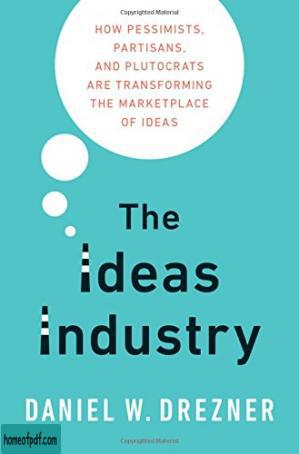The Ideas Industry: How Pessimists, Partisans, and Plutocrats are Transforming the Marketplace of Ideas
该资源由用户: 天神院铁磊 上传 举报不良内容

尊敬的读者:
欢迎您访问我们的网站。本站的初衷是为大家提供一个共享学习资料、交换知识的平台。每位用户都可以将文件上传至网盘并分享。
然而,随着用户上传的资料增多,我们发现部分不宜或版权问题的书籍被分享到了本站。
为此,我们已经关闭了分享入口,并进行了多次书籍审查,但仍有部分内容未能彻底审查到位。
在此,我们恳请广大读者与我们共同监督,如发现任何不宜内容,请 点击此处 进行举报,我们会第一时间处理并下架相关内容。
希望我们能共建一个文明社区!感谢您的理解与支持!
扫一扫即可关注本站(PDF之家)微信公众账号
发送您想要找的书籍名称即可找到书籍

本站为非盈利性网站, 但服务器成本高昂, 如果本站内容对您有帮助, 欢迎捐赠, 您的鼓励是我们最大的动力!
声明
本站资源来源于网络及个人用户网盘上传,仅用于分享知识,学习和交流! 本站不保存,不制作,不出售任何图书。请您下载完在24小时内删除。 资源禁用于商业用途!如果您喜欢本站资源,请购买正版,谢谢合作!
扫码支持一下:


猜你喜欢

《守夜者2》秦明
View more
《哈佛的变革》德里克·博克全新版
View more
《一学就会的超级记忆术》本杰明奥斯丁
View more
《當帝國回到家:戰後日本的遣返與重整》《当帝国回到家:战后日本的遣返与重整》 Lori Watt 華樂瑞文字版
View more
《早上九点叫醒我》阿乙
View more
凯蒂·洛芙《暮色将至:伟大作家的最后时刻》 文字版
View more
《一桩事先张扬的凶杀案》加西亚·马尔克斯中文经典版
View more
The Definitive Guide to MySQL5 3rd Edition - Michael Kofler
View more
《赢在思维——初中化学拉分题解题思维训练(9年级+中考)》彭嘉全文字版
View more
《极简地理学》威尔·威廉斯 中文版
View more
《不完美,才美》海蓝博士文字版
View more